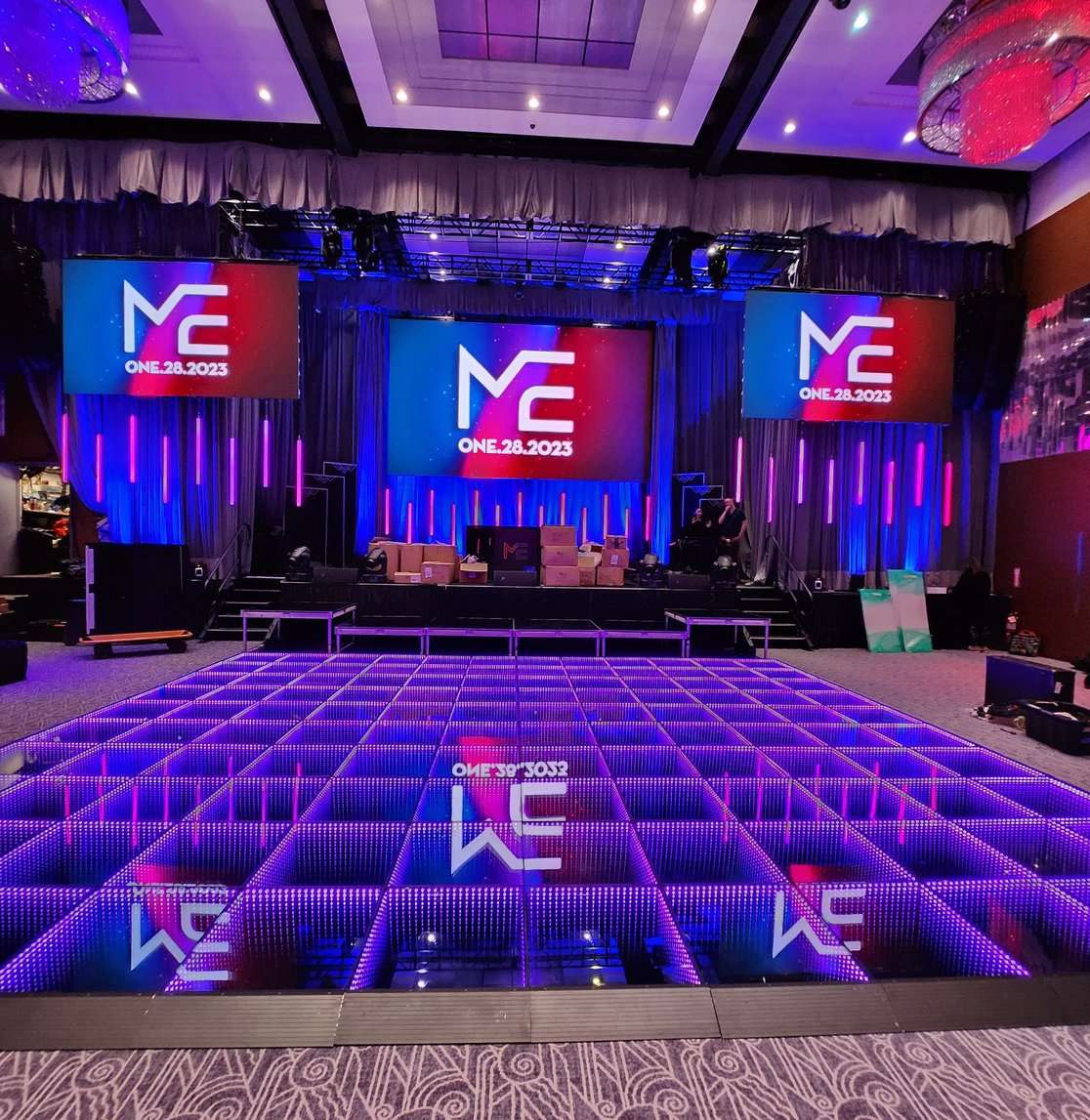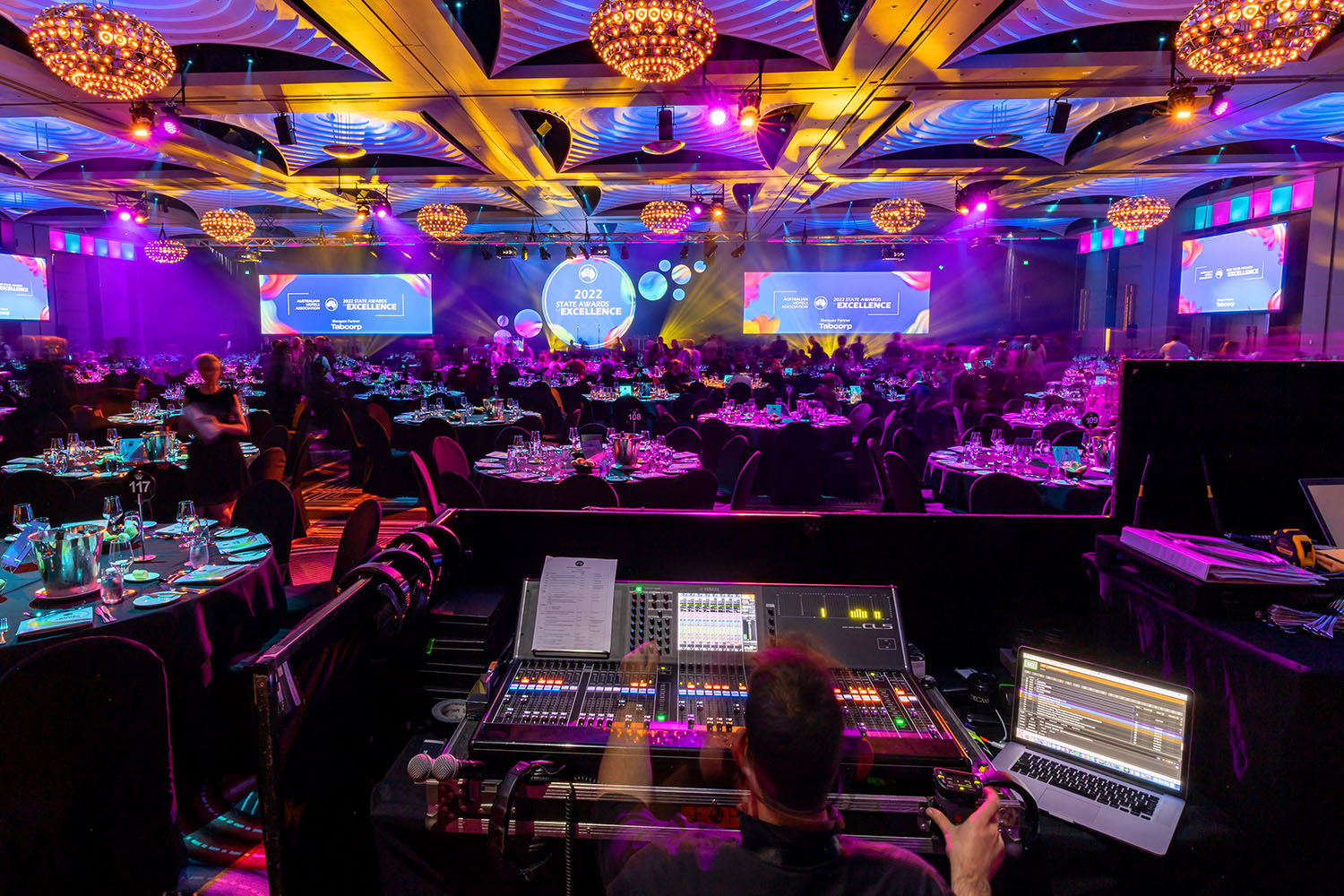Understanding the Fundamentals of Event Production
The intricacies of occasion manufacturing call for an extensive understanding of numerous fundamental aspects, including the facility of clear goals, careful budgeting, and tactical place option. As we discover these essential aspects, one need to consider just how they relate and impact the total success of an event.
Specifying Event Goals
Defining event goals is an important action in the event manufacturing procedure, acting as the structure upon which all planning and implementation are developed. Clear objectives supply direction, guaranteeing that all stakeholders recognize the event's function and wanted end results. These objectives ought to specify, quantifiable, attainable, relevant, and time-bound (CLEVER), which enables efficient analysis of success post-event.
Recognizing the target audience is necessary in forming the purposes. Comprehending their expectations, demographics, and interests allows occasion planners to customize content and experiences that reverberate with guests. Furthermore, straightening the objectives with broader organizational objectives cultivates assistance from leadership and stakeholders, making sure that the event adds to the general objective.
Interaction and interaction are critical elements to think about when defining goals, as they significantly influence participant satisfaction. Finally, it is vital to interact these purposes plainly to all employee included in the planning procedure. This quality enhances collaboration, concentrating initiatives on achieving a combined vision. By developing well-defined goals, event producers can produce an organized framework that guides decision-making and resource allowance, inevitably resulting in an effective event.
Budgeting for Success
Effective budgeting is important for the effective production of any occasion, as it gives a monetary framework that supports all planning tasks. A well-structured spending plan enables event planners to assign resources successfully, making sure that every facet of the occasion is sufficiently funded while lessening the risk of overspending.
To produce an effective spending plan, start by identifying all possible costs, such as venue costs, food catering, entertainment, tools rentals, and advertising and marketing. It is vital to classify these expenses right into dealt with and variable costs, which aids in understanding which aspects are non-negotiable and which can be readjusted based upon financial restrictions.
In addition, revenue sources must be identified early in the budgeting procedure. This includes ticket sales, sponsorships, and merchandise sales. By approximating prospective revenue, planners can align their expenses accordingly, making sure that the occasion stays monetarily viable.
Regular monitoring of the spending plan throughout the planning process is vital. This permits adjustments to be made as necessary, maintaining monetary self-control. Ultimately, an effective budget plan not just safeguards against unexpected expenses yet additionally improves the overall high quality and experience of the occasion, ensuring its success.
Venue Selection Strategies
Choosing the appropriate place is an important element of effective event production, as it sets the stage for the general experience. The very first step in place option is to specify the occasion's goals and audience, which will lead the selection of place and capacity. Considerations such as accessibility, setting, and available amenities should straighten with the occasion's motif and purpose.
Following, review the venue's capacity to fit your expected number of guests while making certain comfort and engagement. It is vital to check out potential locations face to face to assess their format, centers, and overall charm. In addition, examine logistical aspects including auto parking accessibility, public transport access, and any limitations that might impact the occasion.
Budget restraints are additionally extremely important; ensure that the location fits within economic parameters while offering needed services. Agreement negotiations should be click over here now approached with persistance, looking for transparency concerning additional expenses, cancellation policies, and responsibility insurance coverage.
Last but not least, take into consideration the venue's online reputation and previous performance for comparable events (Audio Visual Services). Engaging with previous clients can supply important understandings right into the place's integrity and service quality, ultimately aiding in making an informed decision

Technical Production Components
Technical manufacturing components work as the backbone of any type of event, making sure that all sound, visual, and lights elements work harmoniously to create an immersive experience. These components include a variety of technologies and methodologies focused on providing content effectively and engagingly.
Audio systems are important, entailing microphones, speakers, and mixing equipment to make sure clear audio shipment. Top quality audio is necessary for maintaining audience interaction, specifically in larger locations. Visual components include projection systems, LED screens, and video clip feeds, which enhance the aesthetic story of the event and support the total motif.
Lights plays a pivotal role in assisting and establishing the state of mind target market focus. A well-designed lighting plan includes various techniques, such as limelights, ambient illumination, and color washes, to create dynamic atmospheres suitable for different segments of the event.
Furthermore, technical production elements require careful preparation and assimilation. This includes pre-event noise checks, video official site practice sessions, and lights tests to attend to potential difficulties prior to the event begins. Inevitably, a natural technological production technique not only boosts the event experience but additionally reflects the expertise and focus to detail that individuals anticipate.

Group Coordination and Roles
Successful occasion manufacturing hinges on smooth team coordination and plainly defined functions amongst all participants. For an occasion to run smoothly, each team member must understand their duties and just how they contribute to the total vision.
Efficient interaction is essential in this collective atmosphere. Audio Visual Services. Regular meetings and updates make certain all staff member are straightened and can adapt to any type of modifications or challenges that emerge. Using article source job monitoring devices can promote this communication, enabling real-time updates and task monitoring
In addition, cultivating a society of teamwork is crucial. Motivating collaboration amongst diverse ability not only boosts problem-solving yet additionally promotes a positive functioning ambience. When employee feel valued and empowered, their productivity increases, inevitably bring about a much more successful event.
Conclusion
Finally, a detailed understanding of occasion production encompasses defining clear purposes, developing a durable budget, choosing a proper place, managing technical manufacturing components, and making sure reliable team coordination. Each part plays a critical duty in the general success of an occasion. By diligently dealing with these basics, occasion coordinators can improve the guest experience, enhance resources, and attain wanted outcomes, thus adding to the event's general performance and impact within the intended target market.
The ins and outs of occasion manufacturing need a thorough understanding of a number of foundational components, consisting of the facility of clear goals, thorough budgeting, and tactical place choice.Defining occasion purposes is an essential step in the event production process, serving as the structure upon which all planning and execution are developed. By establishing distinct goals, occasion manufacturers can develop an organized structure that guides decision-making and resource allowance, eventually leading to a successful event.
In final thought, a comprehensive understanding of event production incorporates specifying clear goals, developing a durable budget, selecting a suitable venue, handling technical manufacturing components, and making certain effective group control. By thoroughly resolving these fundamentals, event coordinators can improve the guest experience, optimize sources, and accomplish desired end results, thereby contributing to the occasion's overall effectiveness and influence within the designated audience.